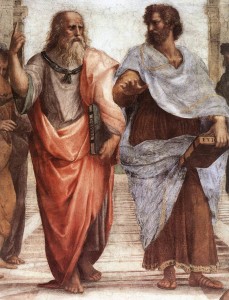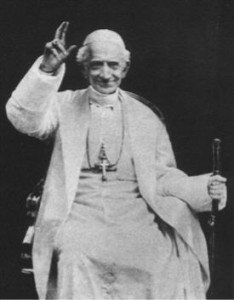At what point did hominids begin to recognize musical pitch? Rhythm seems much more obvious, since so many of our bodily functions are rhythmic. We breath, we walk, we chew…Most noises in nature are chaotic, when judged by musical pitch. Even birdsong, while beautiful, is not precisely pitched, nor does it often make use of one pitch held for any identifiable length of time. What was the experience of the first person who heard that a sound could be one note? And who discovered the possibility of adding one pitch to another, that two pitches, with a long enough duration for each, could be heard in relation to one another? I would like to imagine this discovery as a revolution in awareness. A pitch emerges as order out of chaos, hints at fundamentals. This primal recognition is so far from us for whom music is a cheap commodity. It is not so easy for us to engage profitably with ideas like the Music of the Spheres or the myth of Orpheus.
Pythagoras achieved an insight when he heard the relations of pitches in the blacksmith’s shop. For the Pythagoreans and for Plato after him, harmony was represented by an enacted by musical pitch. Today, we have discovered that all of the cosmos can be understood as waves in vibration. But we cannot perceive this fundamental order without an accompanying silence.
[The second movement of Beethoven’s Fourth Piano Concerto is often understood as a duel between Orpheus=the piano and the Underworld=the orchestra. Listen to how the piano tames the orchestra and brings the chaotic rhythms and angular pitches into harmony:]

